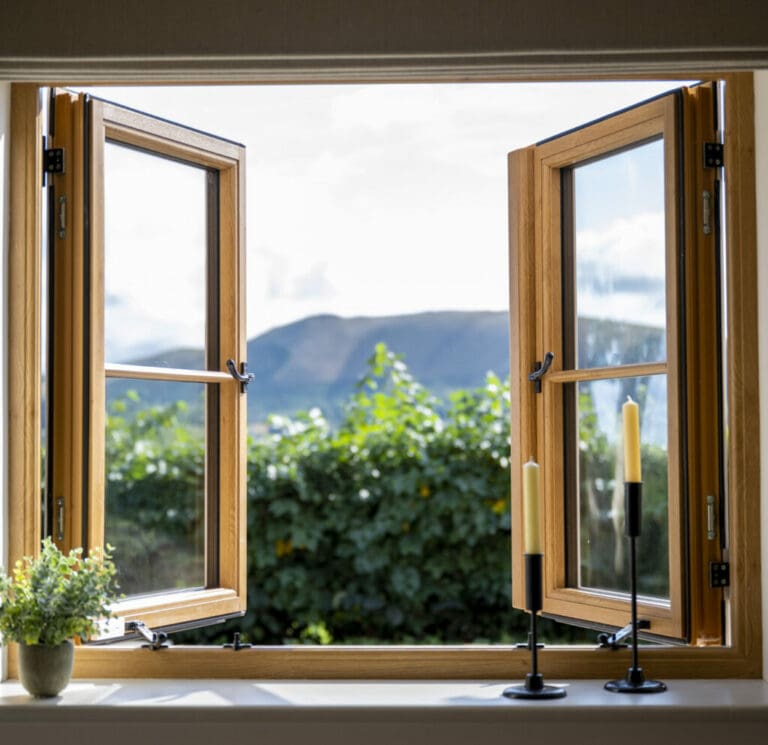The role of airflow in keeping your home, bedroom, and your health in good shape
We all love the feeling of fresh air drifting through the house on a warm summer’s day—but did you know that opening your windows is just as important in winter, too? Whether it’s five minutes or fifty, letting your home breathe plays a vital role in preventing condensation, damp, and black mould, all while improving indoor air quality.
And yes, we know—if you’re anything like us, you’ve probably become a little obsessed with checking your windows for signs of condensation (who knew those little water droplets could cause so much stress?). But trust us, it’s a habit worth keeping!
In this post, we’ll explain why airflow matters year-round, what the risks are if your home stays too sealed up, how to keep your bedroom environment fresh and healthy, and what to do if you notice black mould appearing.

Why Airflow Is So Important in the Home (Especially the Bedroom)
Everyday activities like cooking, bathing, and even breathing release moisture into the air. Bedrooms, in particular, can get quite humid overnight due to breathing and perspiration while sleeping. Without proper ventilation, this moisture has nowhere to go—and that’s when condensation and mould can start to form.
When warm, moisture-rich air hits cold surfaces like windows and walls, it condenses into water droplets. Over time, this can lead to damp patches and, eventually, black mould. Beyond damaging your home, mould can also have serious health consequences—especially for those with allergies, asthma, or other respiratory issues.
Opening your bedroom windows regularly helps to:
✅ Release excess moisture from the air
✅ Prevent condensation and black mould
✅ Improve indoor air quality
✅ Promote better sleep with fresh, oxygen-rich air
Opening Windows in Winter: Why It Still Matters
It’s understandable to hesitate before opening a window on a cold day—but it’s still important, especially in bedrooms. Even just opening windows for 5–10 minutes a day can help regulate humidity and keep condensation under control.
Try opening bedroom windows first thing in the morning to let stale, humid night air out, and before bedtime to bring in fresh air that supports restful sleep. Trickle vents can help, but nothing beats a good airing out.
How to Deal with Black Mould if You Spot It
If you notice black mould starting to appear around window frames or walls, it’s important to act quickly. Here are some natural and off-the-shelf remedies that can help:
Natural Remedies:
- White vinegar: Spray undiluted vinegar onto the mouldy area, leave for an hour, then wipe clean. Vinegar kills many mould spores naturally.
- Baking soda: Mix baking soda with water to create a paste and scrub the mould away gently. Baking soda also absorbs moisture and deodorizes.
- Tea tree oil: A natural antifungal, mix a teaspoon with water in a spray bottle and apply to affected areas.
Off-the-Shelf Remedies:
- Use mould removal sprays specifically designed for household use—always follow the manufacturer’s instructions and wear gloves and a mask for safety.
- Anti-mould paints or sealants can be applied to prevent mould from returning after treatment.
Opening your windows regularly is one of the simplest, most effective ways to take care of your home, your bedroom environment, and your health. It’s a low-cost habit that helps prevent black mould, improves indoor air quality, and creates a fresher, more breathable living space all year round.
If your windows don’t open easily, lack ventilation features, or if mould issues persist, we’re here to help. We offer high-quality windows designed to keep your home well-ventilated, secure, and comfortable—no matter the season.

